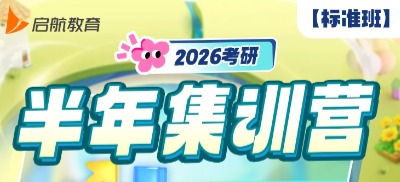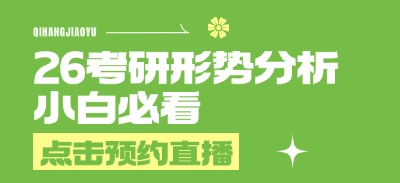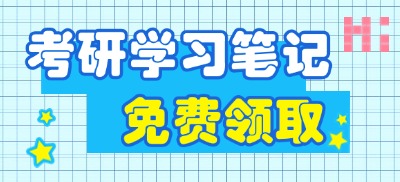天津外国语大学
xxxx年攻读硕士专业学位研究生入学考试试题
考试科目:英语教学综合(仅供参考)
(注意:答案必须写在答题纸上)
(考试时间180分钟 总分150分)
I. Briefly explain the following concepts in the context of language teaching. Please limit your response to each concept to 200 words (30 points).xxxx年攻读硕士专业学位研究生入学考试试题
考试科目:英语教学综合(仅供参考)
(注意:答案必须写在答题纸上)
(考试时间180分钟 总分150分)
1. TESOL
2. ZPD
3. UG
4. Mobile learning
5. L1 Transfer
II. Give your opinion to the following scenarios. Please limit your response to each scenario to 200 words (70 points).
1. He Ping, a parent of a first-year primary school pupil, learned from the TV news that the Ministry of Education is drafting a grading system for English-language ability for Chinese nationals, and is preparing an examination to test the takers’ English capabilities. The new grading system will have nine grades. The first and second grades correspond with primary school pupils, and the third and fourth grades are for middle school students, and the fifth and sixth grades are for college students... She is worried that her son will be under greater pressure in learning English. If you were her son’s teacher and asked about the system, how would you explain it to her?
2. Liu Ying, an English major at a university, is working as a teacher in a tutoring agency. In order to improve her students’ grammatical accuracy, she intends to try two ways. She describes one type of instruction in which learners’ attention is drawn to form separately from communicative activities, that is, before, in preparation, or after a communicative activity. She explains the second type of instruction in which learners’ attention is drawn to form during communicative activities. If you were Liu Ying, how would you give instructions? What are your reasons?
3. Students in China are assessed throughout their schooling. Examination scores have become an important, if not sole criterion for high school and university entrance; therefore, the prevailing social standard is that a good teacher is one whose students can achieve high scores. Guo Yan has been teaching English in a junior school for about one and a half years in Tianjin. She said, “Parents and the society always expect teachers to turn their students to be high-achieving. I don’t think it is the only purpose of education. But we do not have enough power to change society.” What’s your opinion about her view? Why?
4. When you look back at your prior educational experience, what school policies or practices are most dissatisfying to you? Describe them and explain whether they could be equally dissatisfying to other students.
5. While working with year-three English majors in a university, I asked them what other courses are offered to them. To my amazement more than 80% courses are translation-oriented, like intermediate/advanced interpretation, E-C/C-E translation, news translation, literature translation, to name just a few. What do you think of such a curriculum for English majors? What changes would you propose if you are to redesign the curriculum?
6. You must be a very mature language learner by now. What language learning strategies do you think are most effective? When you serve as a future teacher, are you going to encourage your students to take advantage of the same strategies? Why (not)?
7. In learning psychology a distinction is made between intrinsic and extrinsic learning motivation. A student with intrinsic motivation seems to learn for its own sake while a student with extrinsic motivation approaches learning for external rewards. Then what implications would intrinsic and extrinsic learning motivation have for teachers? Which motivation is of more importance? Why?
III. Write an essay of 600 words to elaborate your opinion on the following statement (30 points).
“Thou shalt not teach language without also teaching culture.” – (Higgs, 1990)
IV. Design a lesson plan for an English class of 45 minutes on the material provided in the following. Your teaching plan should at include: 1) level of students; 2) teaching objectives; 3) time allocation; 4) teaching procedures; 5) teaching techniques. You may use the given format or design your own.
There was once a very rich merchant, who had six children, three sons, and three daughters. His daughters were extremely handsome, especially the youngest. When she was little everybody admired her, and called her “The little Beauty”.
The two eldest had a great deal of pride, because they were rich. They gave themselves ridiculous airs, and would not keep company with any but persons of quality. They went out every day to parties of pleasure, plays, concerts, and so forth, and they laughed at their youngest sister, because she spent the greatest part of her time in reading good books.
All at once the merchant lost his whole fortune, except a small country house at a great distance from town, and told his children with tears in his eyes, they must go there and work for their living.
The family had lived about a year in retirement, when the merchant received a letter with an account that a vessel, on board of which he had effects, was safely arrived. This news had liked to have turned the heads of the two eldest daughters, who immediately flattered themselves with the hopes of returning to town, for they were quite weary of a country life; and when they saw their father ready to set out, they begged of him to buy them new gowns, headdresses, ribbons, and all manner of trifles; but Beauty asked for nothing but a rose. The good man went on his journey, but when he came there, they went to law with him about the merchandise, and after a great deal of trouble and pains to no purpose, he came back as poor as before.
He was within thirty miles of his own house, thinking on the pleasure he should have in seeing his children again, when going through a large forest he lost himself. He began to apprehend being either starved to death with cold and hunger, or else devoured by the wolves. All of a sudden, he saw a light at some distance. The merchant returned God thanks for this happy discovery, and hastened to the place, but was greatly surprised at not meeting with anyone in the outer courts of a castle.
Teaching Plan
| Unit/Topic: ________________________ Date:________ Key Learning Area: _________________ Year Level:________ |
Teaching procedure:
| Time | Content | Teaching Approaches |
| |
(Add space if necessary) |


















